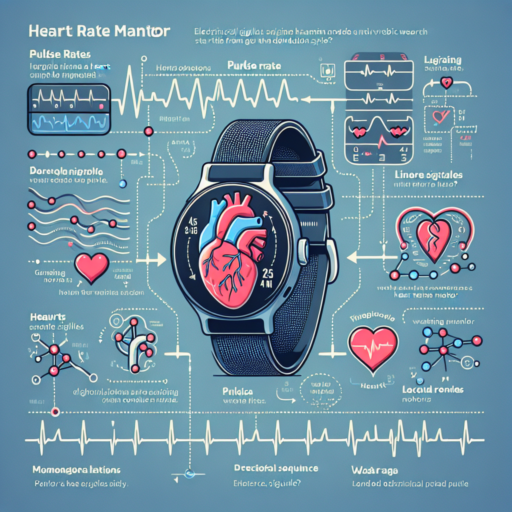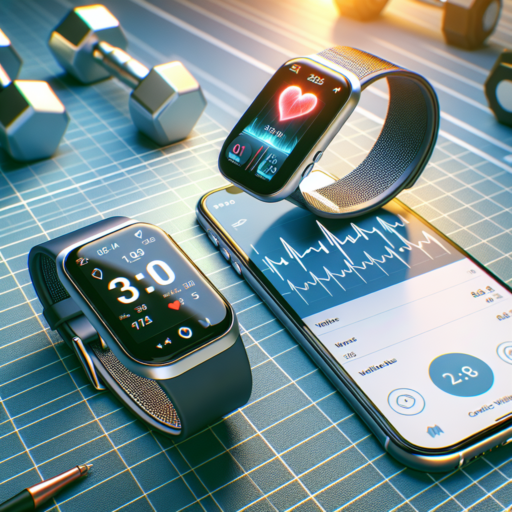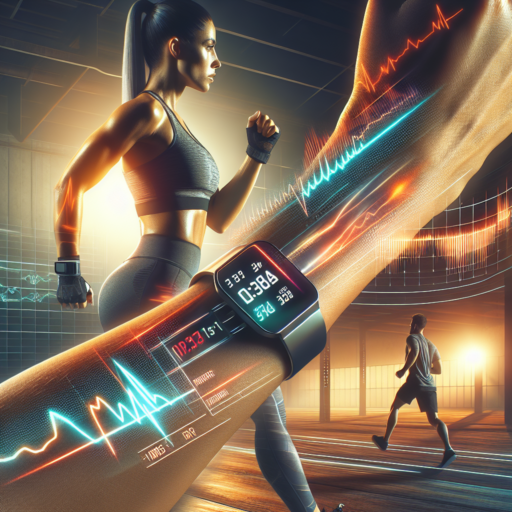What Makes a Heart Monitor Accurate?
When exploring the functionality of heart monitors, understanding the factors that contribute to their accuracy is critical. At its core, the precision of a heart monitor hinges on several vital components. Each element, from sensor technology to placement and personal adjustments, plays a crucial role in ensuring the device’s reliability in tracking heart activity. Let’s delve into what makes these devices tick with precision.
Sensor Technology and Algorithm Efficiency
The heart of a heart monitor’s accuracy lies in its sensor technology and the algorithms it employs to interpret data. Advanced sensor technologies, such as photoplethysmography (PPG) used in optical sensors, measure the blood volume changes in the microvascular bed beneath the skin. However, the accuracy is not solely dependent on the sensors; the algorithms that interpret the sensor data to determine heart rate and heart rate variability are equally important. The sophistication and update frequency of these algorithms can significantly enhance the precision of heart rate readings.
Placement and Fit of the Device
The accuracy of a heart monitor can also greatly depend on its placement and how well it fits the user. Monitors worn closer to the heart, such as chest straps, generally provide more accurate readings than those worn on the wrist, like most smartwatches. This is due to the closer proximity to the heart allowing for more direct heart rate monitoring. Moreover, a secure fit ensures that the sensors maintain consistent contact with the skin, reducing the likelihood of inaccurate readings caused by motion or slippage.
Personal Calibration and Environmental Factors
Lastly, the accuracy of a heart monitor can be influenced by personal calibration and environmental factors. Personal calibration, which involves adjusting the monitor according to individual specifics such as age, weight, and heart condition, can enhance the device’s accuracy. Environmental factors, such as temperature and humidity, can also affect the device’s performance. High temperatures may cause perspiration, which might interfere with sensor functionality, whereas cold conditions could impact the wearer’s circulation, potentially leading to less accurate readings.
Top 5 Most Accurate Heart Monitors of the Year
Finding an accurate heart monitor is crucial for those focusing on their health, fitness journey, or managing medical conditions. The year has witnessed advanced technology being incorporated into heart monitors, improving their accuracy and reliability significantly. We’ve curated a list of the top 5 most accurate heart monitors that stand out in the market for their precision, user-friendly features, and trustworthy feedback. These devices have been tested and have received excellent feedback from both health professionals and everyday users.
Criteria for Accuracy
In evaluating heart monitors, accuracy does not stand alone; it is accompanied by consistency, durability, and the ability to provide real-time feedback without noticeable lags. The monitors on our list have been chosen based on these stringent criteria, ensuring they meet the highest standards of precision in heart rate monitoring. These devices excel in providing consistent measurements, are robust for everyday wear, and offer instant data to keep users informed about their heart health without any guesswork.
User Experience and Compatibility
While accuracy remains paramount, a heart monitor’s value is also significantly influenced by its ease of use and compatibility with other devices. The most accurate heart monitors of the year not only deliver precise readings but are also designed for seamless integration with smartphones and fitness apps. This allows users to track their heart rate over time, set health goals, and monitor progress with ease. The winners in our list boast user-friendly interfaces, long battery life, and comfortable designs, making heart monitoring an integrated part of users’ daily lives.
How to Choose the Right Heart Monitor for You
Choosing the right heart monitor is crucial for anyone looking to keep an eye on their cardiac health, whether you’re an athlete aiming to optimize your performance or someone monitoring for health reasons. The vast array of options available can make this decision seem daunting; however, by focusing on a few key factors, you can find a device that best meets your needs.
Consider Your Activity Level
Firstly, consider your activity level. If you’re highly active, look for a heart monitor that’s designed for sports performance, offering features like waterproofing, long battery life, and high accuracy. Athletes might prefer models that can seamlessly integrate with other fitness devices and have the capability to track multiple types of workouts. On the contrary, if your focus is primarily on health monitoring rather than sport, a basic model that tracks heart rate and daily activity might be sufficient.
Look for Essential Features
Next, identify the features that are essential for your needs. Heart rate alerts, for instance, are crucial for those monitoring specific health conditions, while connectivity features such as Bluetooth can be vital for those who want to sync their data with their smartphone or fitness apps. Consider also the usability of the device; it should have a comfortable fit and an easy-to-read display.
Lastly, it’s imperative to balance cost with functionality. While it’s tempting to opt for a heart monitor with numerous features, evaluate which functions you will realistically use. A more affordable monitor with reliable heart rate tracking might serve your needs without the added expense of unnecessary features. Remember, the right heart monitor for you is one that fits both your lifestyle and your budget.
Benefits of Using an Accurate Heart Monitor
Utilizing an accurate heart monitor is an essential tool for individuals aiming to enhance their health and fitness levels. The precision of these devices ensures that users have access to real-time data, which is paramount for adjusting workouts, monitoring heart health, and achieving fitness goals efficiently. In this context, several key benefits stand out.
Improved Workout Efficiency
One of the primary advantages of employing an accurate heart monitor is the ability to optimize workout sessions. By understanding your heart rate zones, you can tailor your exercise intensity to burn fat more effectively or increase cardiovascular endurance. This targeted approach not only saves time but also maximizes the benefits of each workout session.
Enhanced Heart Health Monitoring
Another significant benefit is the facilitation of continuous heart health monitoring. For individuals with heart-related concerns or those aiming to prevent potential issues, having accurate real-time data allows for immediate adjustments in lifestyle and activities. This proactive approach contributes substantially to long-term heart health and well-being.
In conclusion, the benefits of using an accurate heart monitor are multifaceted, impacting various aspects of fitness and health. The precision and reliability of these devices play a critical role in enabling users to achieve their health and wellness objectives effectively.
Understanding Heart Monitor Technology
Heart monitor technology has advanced significantly over the years, offering a detailed insight into our cardiac health. From wearable devices that track your heart rate during physical activities to sophisticated monitors used in healthcare settings, understanding how these devices work can empower us to take better care of our heart health.
At its core, heart monitor technology relies on sensors to detect the electrical signals produced by the heart as it beats. These signals are then processed and displayed, allowing us to monitor our heart rate, rhythm, and other critical metrics in real-time. Whether you’re an athlete looking to optimize your training or someone monitoring a heart condition, these devices play a crucial role in health management.
Modern heart monitors come in various forms, including chest straps, wristbands, and even built into smartwatches. Each type offers its own set of advantages in terms of accuracy, comfort, and convenience. For example, chest strap monitors are highly regarded for their precision, making them a popular choice among fitness enthusiasts. On the other hand, wrist-based monitors offer a more comfortable and convenient option, suitable for everyday wear.
Comparison: Chest Strap vs. Wrist-Based Heart Monitors
Accuracy of Measurements
When it comes to monitoring heart rates accurately, chest straps have long been considered the gold standard. Utilizing electrical signals directly from the heart, they measure heart rate with a high level of precision. On the other hand, wrist-based monitors use optical sensors to detect blood flow, a method that can be affected by motion, temperature, and even skin color, potentially leading to less reliable readings during high-intensity workouts or for individuals with darker skin tones.
Comfort and Convenience
Wrist-based monitors, often integrated into smartwatches, score highly on convenience and comfort. They are easy to wear all day, blending seamlessly with most daily activities and providing not only heart rate data but also a plethora of other features like notifications and activity tracking. Chest straps, while generally more accurate, can be seen as less comfortable for long-term wear, potentially leading to chafing and irritation during prolonged use or intense exercise sessions.
Price Comparison and Features
When evaluating the cost, wrist-based heart rate monitors often carry a higher price tag due to their additional functionalities beyond heart rate tracking, such as GPS, step counting, and more. In contrast, chest straps are typically more affordable and focused on providing precise heart-rate data without the extra bells and whistles. However, the gap between the two in terms of price is narrowing as more manufacturers enter the market, offering a wide range of options tailored to specific budgetary and feature-based needs.
User Reviews: Real Experiences with Accurate Heart Monitors
Exploring the world of heart monitors, users often seek devices that guarantee accuracy and reliability. Reviews from real users shed light on how certain heart monitors stand up to the rigor of daily activities, exercise, and health monitoring needs. Accurate heart monitors are not just tools but companions in the journey towards a healthier lifestyle. Through these testimonials, potential buyers can gain insights into which devices offer the most dependable readings and user-friendly experiences.
Many users highlight the importance of comfort and ease of use in their reviews. They detail how certain designs of heart monitors allow for uninterrupted wear throughout the day and during sleep, which significantly impacts their choice. Features such as long battery life, waterproof capabilities, and seamless integration with mobile health apps often emerge as valuable aspects. These real-life experiences provide a comprehensive view of what to expect from accurate heart monitors, helping others to make informed decisions based on shared experiences.
Moreover, the accuracy of heart rate data collected during various types of physical activities—from high-intensity workouts to more sedentary tasks—is a common theme in user reviews. Testimonials often discuss how data accuracy impacts their training regimes, health monitoring, and even medical conditions. By analyzing these reviews, one can discern patterns in product performance, offering a peek into which heart monitors deliver on their promises of accuracy and reliability in real-world scenarios.
Tips for Getting the Most Accurate Readings from Your Heart Monitor
Keeping track of your heart rate is crucial for understanding your health and fitness levels. However, getting accurate readings from a heart monitor can sometimes be a challenge. To ensure you’re getting the most precise data, follow these tips to optimize the performance of your heart rate monitor.
Ensure Proper Placement
One of the key factors in achieving accurate heart monitor readings is ensuring the device is properly positioned. For chest straps, the sensor should sit snugly below the chest muscle, while wrist-worn devices need to be tight enough to stay in place but not so tight that they cut off circulation. Additionally, the skin under the device should be clean and moist to improve conductivity. Using electrode gel on chest straps can further enhance signal quality.
Maintain Your Device
Regular maintenance is vital for the accuracy and longevity of your heart monitor. Keep the sensors clean according to the manufacturer’s instructions, usually by wiping them down with a damp cloth after each use. For chest straps, washing the strap (without the sensor) in soapy water regularly can prevent the build-up of sweat and salt, which can interfere with signal transmission. Remember to fully dry the strap before using it again.
It’s also essential to keep the firmware or software of your heart monitor up to date. Manufacturers frequently release updates that can improve the accuracy of readings. Check the official website or companion app of your device regularly for any available updates.
The Future of Heart Monitoring Devices
The landscape of heart monitoring technology is rapidly evolving, pushing the boundaries of what medical professionals and patients believed was possible. At the crux of this evolution are advancements that promise more accuracy, ease of use, and insights than ever before. As we delve into the future of heart monitoring devices, several key themes emerge, shaping a future where heart health can be more meticulously and seamlessly managed.
Integration with Wearable Technology
One significant trend is the seamless integration of heart monitoring devices with everyday wearable technology. Smartwatches and fitness trackers are no longer just about counting steps or calories; they’re evolving into sophisticated health monitors capable of providing real-time heart rate data, detecting irregular heartbeats, and even predicting potential heart-related issues. This development is making continuous heart monitoring more accessible and less intrusive for a broader segment of the population.
Advanced Diagnostic Capabilities
The future also holds promise for advanced diagnostic capabilities within heart monitoring devices. Innovations are underway to implement artificial intelligence (AI) and machine learning algorithms that can more accurately interpret heart data, distinguish between different types of arrhythmias, and predict acute cardiac events before they occur. These advancements will offer doctors a more detailed view of a patient’s heart health, enabling earlier intervention and more personalized treatment plans.
As technology continues to advance, the potential for heart monitoring devices expands, offering hope for improved heart health management and outcomes. With ongoing research and development, the next generation of heart monitoring devices will empower individuals and healthcare professionals with deeper insights and tools for proactive heart health management.
No se han encontrado productos.
Accurate Heart Monitors: Are They Worth the Investment?
In an era where health and fitness are at the forefront of everyone’s mind, the question of the value of investment in accurate heart monitors comes up frequently. These devices, designed to track heart rate accurately and provide critical data for fitness improvement and health monitoring, have become increasingly advanced. But, is the added accuracy worth the often higher price tag?
Heart rate accuracy is critical for specific needs, such as professional athletes and individuals with heart-related health issues. These groups rely on precise data to tailor their training, monitor their health status, and even prevent potential health crises. Accurate heart monitors offer features that general fitness trackers might not, including detailed heart rate variability (HRV) analysis, real-time feedback, and the ability to integrate with other health monitoring devices and platforms.
On the flipside, for the everyday user or amateur fitness enthusiast, the precision offered by top-tier heart monitors may surpass what is necessary to achieve general health and fitness goals. The cost-benefit analysis comes down to individual needs and use cases. It’s important to consider how much value the added accuracy brings to your health and fitness regimen before making an investment.




